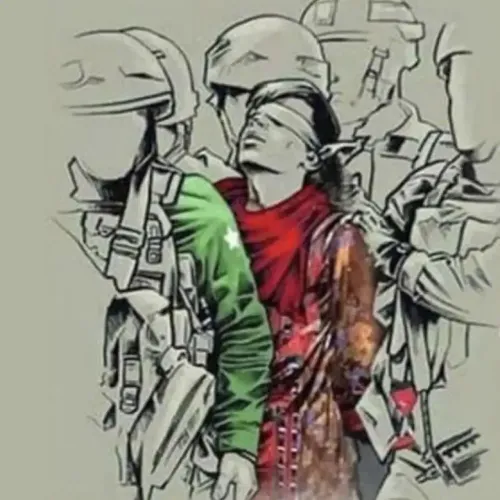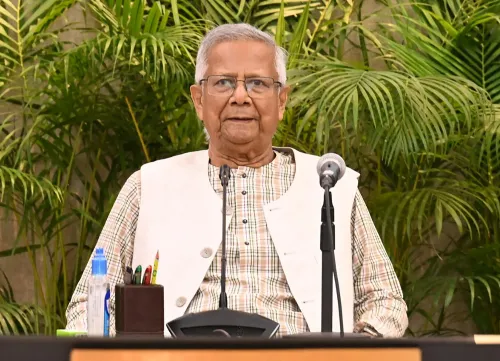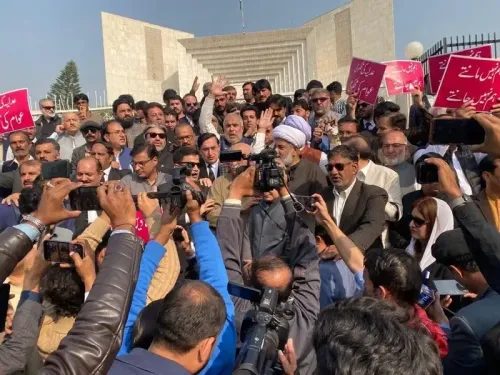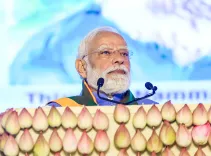Is Sindhi Leader Shafi Burfat Supporting Rajnath Singh's Call for Reunification with India?

Synopsis
Key Takeaways
- Sindh's aspiration for confederation with India is based on historical ties.
- Rajnath Singh's remarks are seen as a potential hope for the Sindhi nation.
- Burfat highlights ongoing repression faced by Sindhis in Pakistan.
- Concerns about cultural identity and historical distortion are raised.
- The relationship between Sindh and India is framed as a shared civilizational bond.
Berlin, Nov 24 (NationPress) Shafi Burfat, the head of the Jeay Sindh Muttahida Mahaz (JSMM), has reaffirmed Sindh's openness to establishing a confederation with India, emphasizing principles of mutual respect, sovereignty, and the rich historical, cultural, and civilizational connections that bind the two, pointing out the ongoing oppression in Pakistan.
This statement follows Rajnath Singh's comments that, despite Sindh not currently being part of India's political boundaries, it remains a crucial aspect of India's civilizational and cultural legacy.
“While Sindh may not be geographically aligned with us, it has always been a part of India in terms of civilization,” he noted.
Expressing support for Defence Minister Singh's remarks made at a recent event in New Delhi, which suggested that Sindh might one day rejoin India, Burfat stated, “We deeply appreciate his statements made at the event organized by the Vishwa Sindhu Foundation.”
Burfat accused Pakistan of instigating state-sponsored violence and oppression, claiming that the mutilated remains of Sindhi political activists are frequently found across Sindh. He characterized Pakistan as “a lethal poison for the existence of the Sindhi nation.”
“To us, Sindh is not just the historical home of the Sindhi people; it is also the birthplace of ancient civilizations. It is from Sindh that India derives its name, and it is the cradle of human civilization, representing one of humanity’s oldest cultural identities. We believe that the Sindhi people have never been historically linked to Arab or Turkic powers through religion or ideology. Instead, our civilizational, cultural, and historical connections have always been with the land of Sapt Sindhudesh, India,” Burfat wrote in a post on X.
Highlighting the shared civilizational space between Sindh and India, Burfat remarked that the region, “forcibly incorporated into Pakistan via British-engineered political manipulation and religious deception,” is currently undergoing a systematic distortion of its history.
He raised alarms about the threats to Sindh's national existence within Pakistan, where the Sindhi language, historical identity, and cultural heritage are under attack due to ongoing Pakistan-sponsored conspiracies.
Burfat alleged that Pakistan's Punjab-centric Islamic theocracy has imposed political oppression on Sindh.
“Extensive areas of Sindh's rivers, coastline, and millions of acres of land have been seized by Punjabi imperial interests along with their corrupt and militarized establishment. The economic resources of Sindh are being exploited, accompanied by deliberate attempts to change the demographic landscape of Sindh,” he asserted.
Reiterating the atrocities committed by Pakistani authorities, Burfat described Rajnath Singh’s assertion that Sindh might become a part of India in the future as a “beacon of hope for national unity, survival, security, and the revival of the Sindhi nation.”









